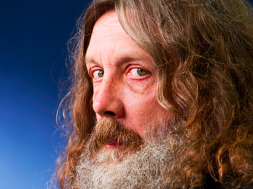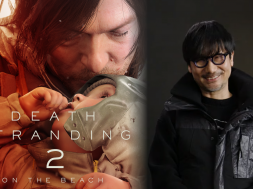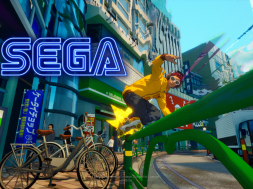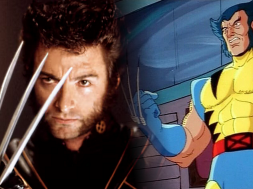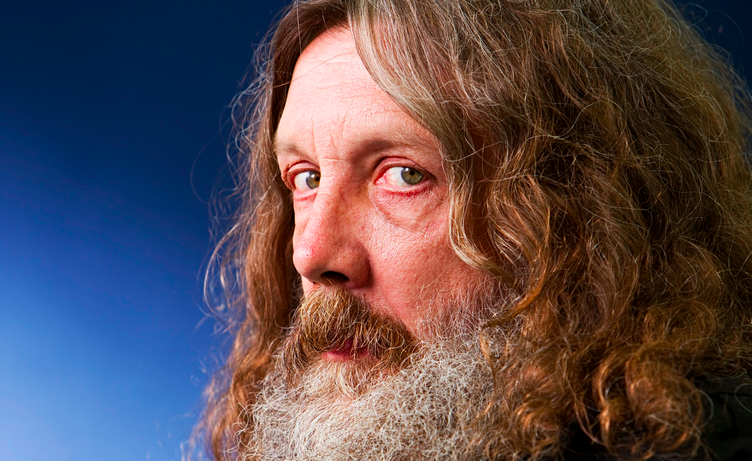
Whatever Happened To The Man Of Yesterday? Are Superheroes Old Hat?
Alan Moore, celebrated writer, occasional magician and all-around wacky uncle of the comic book industry has rocketed into the public eye once again for a statement made more than a year ago. A 2014 interview with our favourite Rasputin-lookalike has been circulating the internet thanks to The Guardian, in which he referred to superheroes as an outdated fictional device. He said, “To my mind, this embracing of what were unambiguously children’s characters at their mid-20th century inception seems to indicate a retreat from the admittedly overwhelming complexities of modern existence…it is, potentially, culturally catastrophic to have the ephemera of a previous century squatting possessively on the cultural stage and refusing to allow this surely unprecedented era to develop a culture of its own, relevant and sufficient to its times.” This statement, in the midst of an undeniable boom in superhero fiction, created quite a ripple in the geek community. I’m interested particularly in his claim that we are focusing too much on the genre of another time and place.
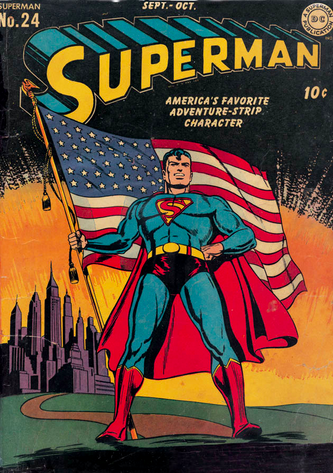 Now, I won’t sit here and claim a ‘vigilante’ was an entirely new concept that began alongside Superman in 1936; plenty of characters tick this box such as Samson, Hercules and Sherlock Holmes, just to name a few. However, the time of Superman’s conception does bear thinking about; with fascism on the rise across Europe and the Second World War brewing, the world undoubtedly appreciated an icon to believe in. Interestingly, if we just go back half a century, heroes tended to be scholarly types fighting against supernatural menaces that often seemed unbeatable (e.g. Dracula). In an explosion of hope, we had heroes that could beat the unbeatable and win the un-winnable (row row, fight the power!).
Now, I won’t sit here and claim a ‘vigilante’ was an entirely new concept that began alongside Superman in 1936; plenty of characters tick this box such as Samson, Hercules and Sherlock Holmes, just to name a few. However, the time of Superman’s conception does bear thinking about; with fascism on the rise across Europe and the Second World War brewing, the world undoubtedly appreciated an icon to believe in. Interestingly, if we just go back half a century, heroes tended to be scholarly types fighting against supernatural menaces that often seemed unbeatable (e.g. Dracula). In an explosion of hope, we had heroes that could beat the unbeatable and win the un-winnable (row row, fight the power!).
As more DC heroes such as Batman and Wonder Woman emerged, Marvel characters began to add more human character traits and harder situations to overcome, such as Spider-Man losing Gwen Stacy or Bruce Banner’s struggle with the Hulk. Comic books also walked in step with large social changes in the United States, with the X-Men created as a metaphor for the Civil Rights movement. More superheroes of colour, super-heroines and LGBTQA characters emerged to reflect these changes. These characters are certainly becoming more diverse and inclusive, which (for me  anyway) is a good movement both culturally and, ultimately, financially.
anyway) is a good movement both culturally and, ultimately, financially.
Therefore I’m not going to say that comic books have stayed completely static from the 30s. However, critiques did emerge about the never-ending fights these characters find themselves in. Alan Moore’s Watchmen is his most memorable take on the issue. The character of Rorschach questions what state of mind a person must be in to realistically wear a mask and fight crime. Rorschach appeared more as a desperately depressed and cynical figure than a force for good in the world. The infamous Killing Joke is, I believe, among the first works that questioned whether Batman is just as unstable as the forces he tries to keep at bay. I used to think I liked Batman, but I later realised it was the villains of the series and their infinitely more understandable stories that drew me in and fascinated me.
I can’t help but see a very American focus on individualism and suspicion of Big Government in these characters. Take Bruce Wayne; the wealthiest man in Gotham who spends the majority of time beating poor people into submission and incarcerating the mentally ill. Or Tony Stark, a character who has concluded (in the films as well) that his amazing inventions are better held by a private corporation than in the hands of the country. I’m not saying this makes the characters less compelling or that these choices are presented as a good thing, but as superheroes put themselves further outside the law and the world they live in, their constant complaints of how bad the world is begins to sound repetitive.
Superhero media has been helpful in criticizing real world issues but I sometimes wonder if the genre and suspension of disbelief it demands can limit these attempts. For example, Captain America: The Winter Soldier had a very promising concept in mind. A symbol of wartime America is put face-to-face with a corrupt state; an America far from the proud nation Steve Rogers stood for. While the struggles of hero against society were engaging, I couldn’t help but be pulled out of the espionage-like thriller when a character does something as ridiculous as whisper “Hail Hydra” in another’s ear. It’s not the best method for running a clandestine, evil and supposedly secret organisation. Maybe figure out a secret handshake or something, guys.
Ultimately, I don’t think the idea of the superhero is worth abandoning just yet. Superheroes helped the world drag itself through the horrors of World War 2 and recognized many other cultural milestones. In a world where bigotry and conflict still abounds, I actually think superhero teams such as the Avengers and the Justice League are the way forward for the genre. Rather than emphasizing individual pride and struggle, it encourages the value of mutual respect, cooperation and the strength to take the stand. That’s still the heroic thing, to the point where I’ll even forgive the ridiculous costumes.
